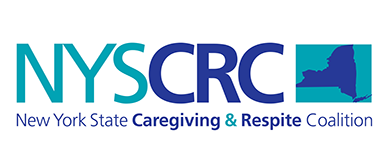Advocacy
Register for advocacy training using this form.
Lift up your voice! Share your caregiving story and advocate for policy change in Albany!
NYSCRC has invited Washington, DC-based nonprofit Community Catalyst to lead advocacy training that's designed specifically for New York State and its caregivers.
The four-hour class is spread over two days.
You should plan to attend classes on BOTH dates.
Thursday, May 18, from 1-3pm
Thursday, May 25, from 1-3pm
For more information, contact Rebecca at rhyde@lifespan-roch.org or 585-645-4572.
You can help make sure that funding for the Kinship System of Care is top of mind for your representative.
Elected officials and their staff members track the number of times they hear about an issue – by letter, email, phone call or in-person meeting. When they get input on an issue, they better understand what matters to the people they represent when they're in Albany.
Personal calls and letters make a difference
Let your voice be heard! Tell your elected officials that you believe that caregivers need their support. Find a list of all New York State's elected officials here.
Help to support Caregivers in New York!
New York Paid Family Leave
Covered reasons for taking sick leave under the law include:
the need for diagnosis, care, or treatment of a mental or physical illness or preventative care of the employee or the employee’s family member; and
certain needs related to the employee or the employee’s family member being the victim of domestic violence, sexual offenses, stalking, or human trafficking, including obtaining services from a domestic violence shelter, rape crisis center, or other services program; participating in safety planning; temporarily or permanently relocating; meeting with an attorney or participating in legal proceedings; enrolling children in a new school; or taking other actions to increase the safety of the employee or employee’s family members.
For purposes of this leave, a “family member” includes an employee’s child (including foster child, legal ward, or equivalent legal relationship), spouse, domestic partner, parent (including a step- or foster parent, legal guardian, or equivalent legal relationship), sibling, grandchild, grandparent, and the child or parent of an employee’s spouse or domestic partner. More Information Here
The RAISE Act Family Caregiver Resource and Dissemination Center
Recognize, Assist, Include, Support, & Engage (RAISE) Family Caregivers Act: Initial Report to Congress (Sep. 2021) - On September 22, 2021, the RAISE Family Caregiving Advisory Council released its initial report to Congress. This report outlines the challenges faced by family caregivers, federal programs currently available to support them, and provides 26 recommendations for better supporting family caregivers.
Recognize, Assist, Include, Support, & Engage (RAISE) Family Caregiving Advisory Council Report – Released in September 2021, this report outlines the challenges faced by family caregivers, federal programs currently available to support them, and provides 26 recommendations for better supporting family caregivers.
ACL announces The Family Caregiving and Advisory Council Mark One Year of Progress! Read the Full Article Here
In 2018, Congress passed the Recognize, Assist, Include Support, and Engage (RAISE) Family Caregivers Act. This Act established the Family Caregiver Advisory Council, which is tasked with creating the country’s first national Family Caregiver Strategy. To support this work, the National Academy for State Health Policy (NASHP) has created a RAISE Act Family Caregiver Resource and Dissemination Center to:
Develop family caregiving resources for state and federal policy makers and other stakeholders;
Provide support to the council and its subcommittee members as they craft policy recommendations;
Convene experts and thought leaders to provide perspectives and expertise to the council; and
Support states as they develop policies to address family caregiver issues. NASHP website





